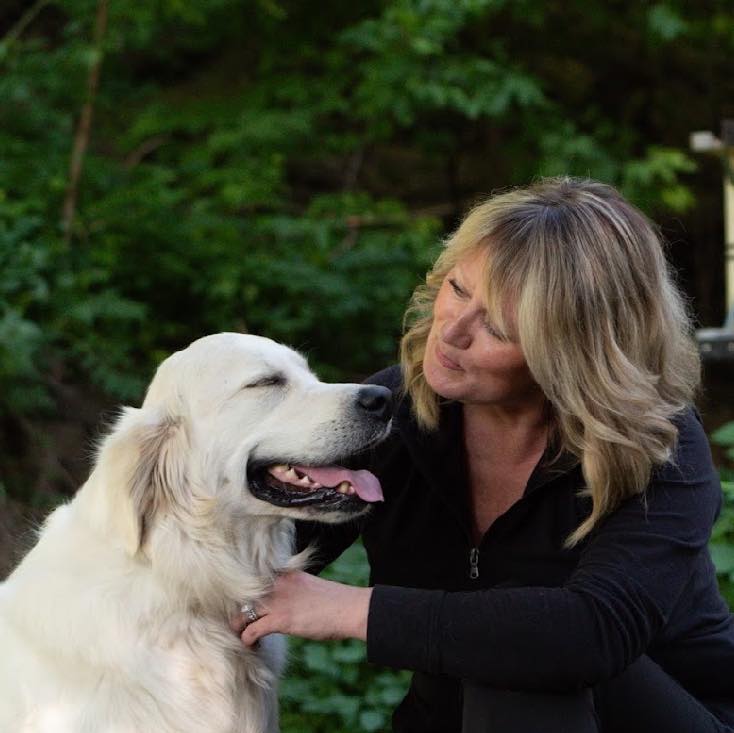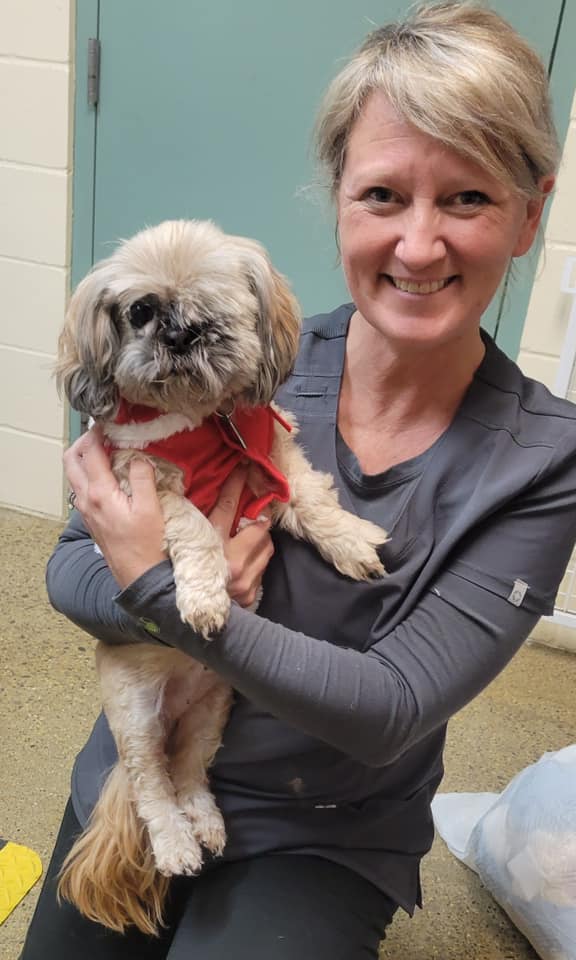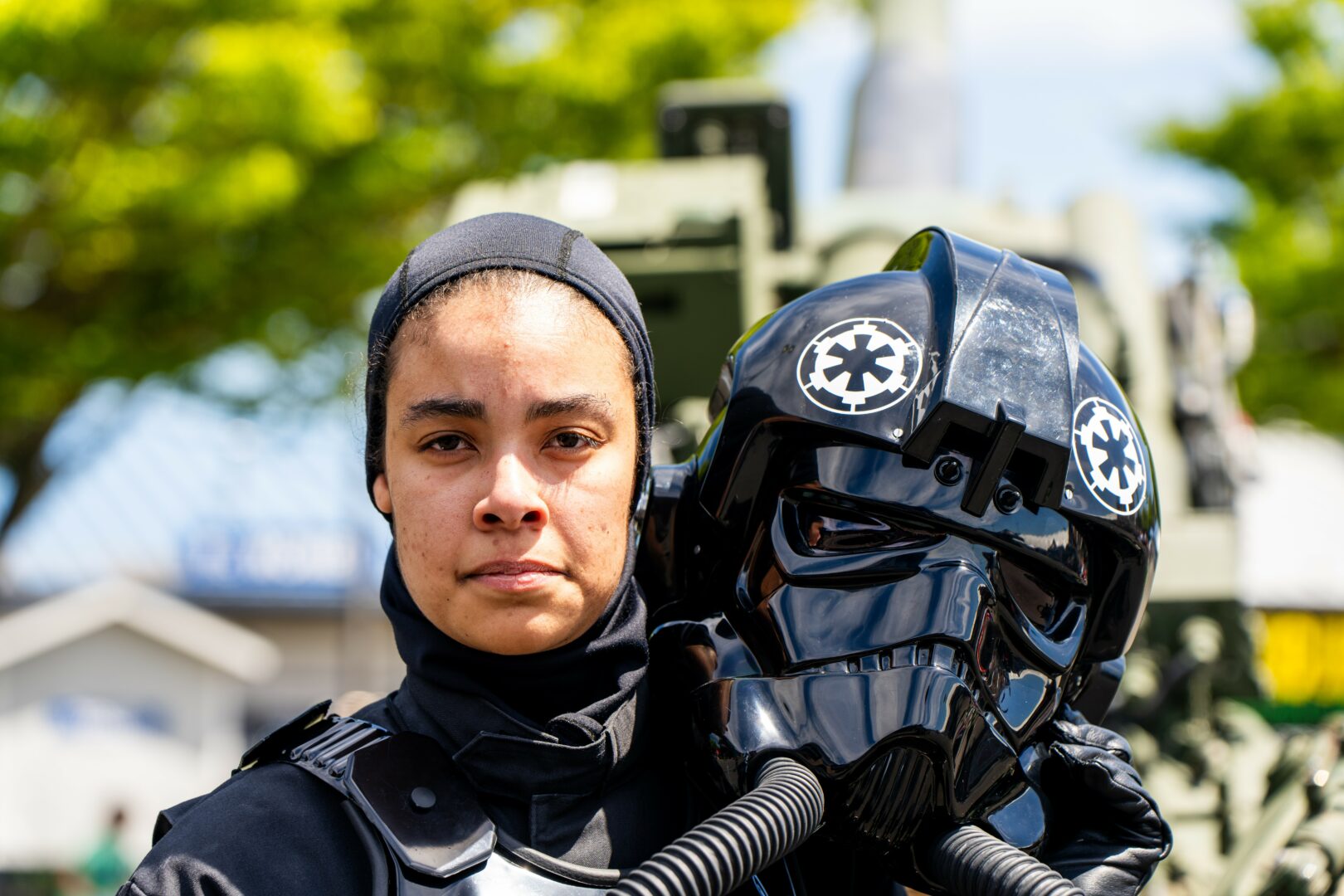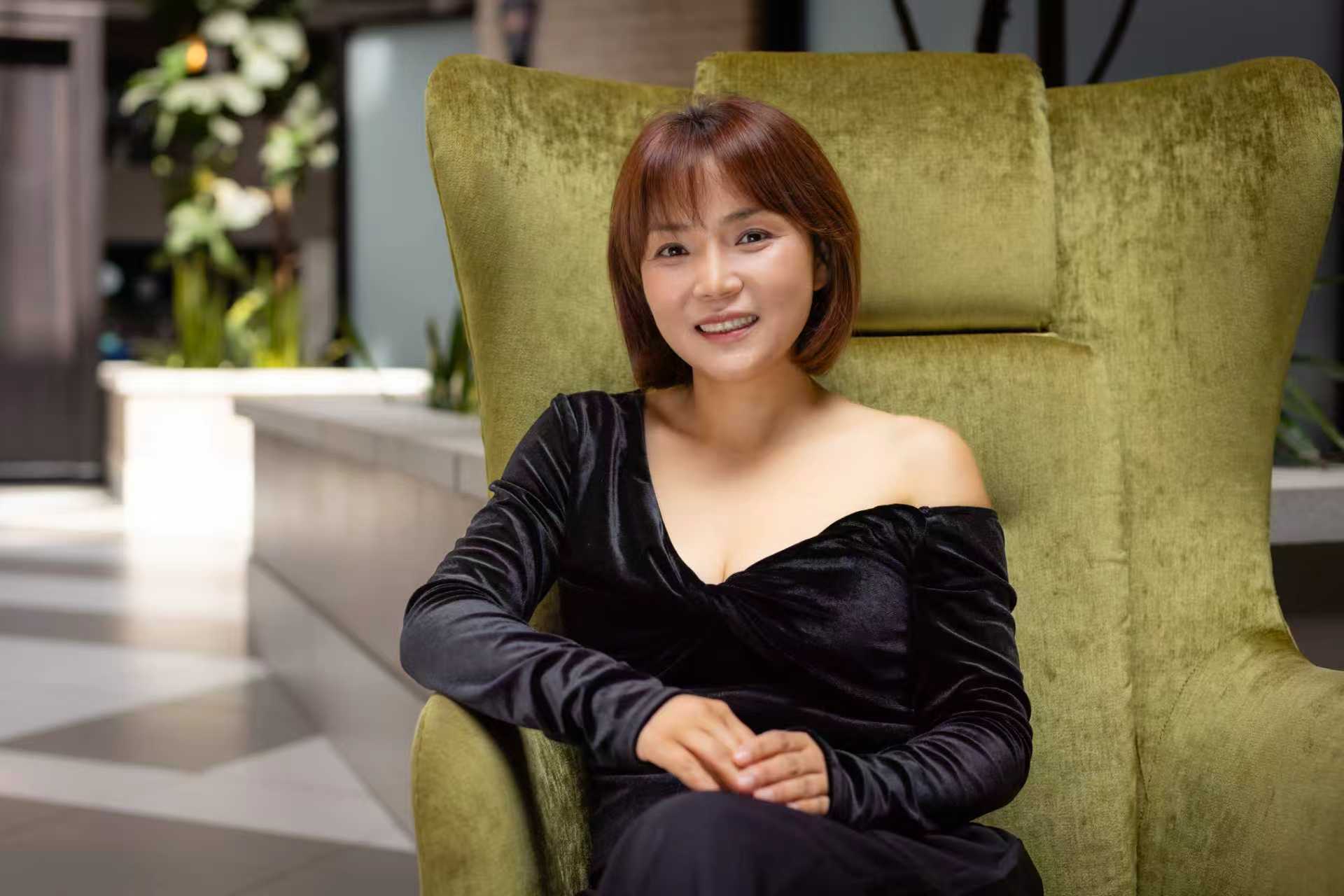We were lucky to catch up with Angela Shook recently and have shared our conversation below.
Angela, so good to have you with us today. We’ve always been impressed with folks who have a very clear sense of purpose and so maybe we can jump right in and talk about how you found your purpose?
I was first drawn to end-of-life care as a hospice volunteer and like many, I was inspired to become an end-of-life doula after the death of a loved one. I believe that many deathworkers come to this work because they have either had a beautiful death experience, and want to help others achieve that same grace. Or, they have had a negative death experience, and hope to keep others from facing that same grief and suffering. For me, it was my grandfather’s death that truly brought me to this work. Although we had a difficult relationship, at the end of my grandfather’s life, we were able to find peace, forgiveness and love. I found that I was comfortable sitting vigil with him, sharing memories and supporting our family as he transitioned out of this life. With this new understanding that death could bring healing and my great respect for the hospice care he received; I wanted to help as many others as possible also have a positive death experience. I have since made end-of-life care and advocacy my full-time passion. I took many trainings including those at the University of Vermonnt (where I now teach), and left my decades long career with an international nonprofit. To further acclimate myself to end of life work, I not only continued volunteering with Hospice, but accepted a position with my local agency to manage the volunteer program. It was a true leap of faith to leave my longtime employment and benefits, but I felt strongly called to doula work and end of life advocacy. I served on the board of directors of the National End-of-Life Doula Alliance (NEDA) from 2018-2022 and served two years as president. Because of the tremendous learnings from NEDA and the shared wisdom and support of other doulas, I eventually took yet another leap of faith by leaving my secure employment with hospice and starting my own practice. In 2020, UVM began offering the companion animal doula course. I originally took this course for a couple of reasons. First, I wanted to expand my doula toolbox. As an end of life doula, I witnessed many times the struggles my clients faced in finding ways to ensure their pets health and happiness after their eventual death. I wanted to learn how to best support them and their companion animals, how to prepare advance care directives for these beloved pets and help their owners achieve peace of mind. My second and more personal reason for taking this course was that I knew my elderly Maltese, Bella, would need more support as time went by; and I knew that I would need to prepare myself for her eventual death. Shortly after the course completed, I was introduced to an amazing local mobile vet who helped my family through the unexpected loss of another family pet. I was so inspired by her compassion and calming presence, and just knew that I could use my doula skills to complement her work. Thankfully, she also saw the value in working with a doula, and Since then, we have partnered to support families as they make the difficult decisions that come at their pets’ last days; and help provide grief support as needed. Companioning these beautiful creatures and their loved ones has been so fulfilling and so very precious to me. These experiences also helped me give Bella the best possible care for her remaining time with me. Sadly, Bella died in August of 2022 and although my heart continues to ache, the knowledge gained through my end of life training, within my supportive and compassionate network of doulas —and following my heart into animal end of life care has done so much to bring me comfort. And I believe, brought comfort to many others as well.
In addition to working with the mobile vet, I have launched my own business LLC Dragonfly End-of-Life Services where I support both humans and animals through this journey. Although I still feel called to help dying humans, I realized that my true passion and strengths lie in caring for companion animals and their families. I became a Reiki practitioner and have completed the Reiki and Energy Healing Course with the Animal Hospice Group. I expanded my animal knowledge by becoming Pet Loss Grief Specialist and chat room host with the Association for Pet Loss and Bereavement and have achieved the Certified Hospice and Palliative Care Advocate designation from the International Association for Animal Hospice and Palliative Care.
I still take on a few human clients each year, but have since specialized in companion animal end of life care. From the very beginning to now, my doula journey has been led by my heart, my sometimes unexpected strengths and skills, and by neverending curiosity.

Thanks, so before we move on maybe you can share a bit more about yourself?
I am a companion animal doula. Just as end-of-life doulas support humans, companion animal doulas extend this sacred care to beloved pets and their guardians. Because our animals hold such deep emotional significance, their deaths can be profoundly devastating. Companion animal doulas offer comfort and guidance through this journey, supporting both the animal and the human.
Our services may include:
• Quality-of-life assessments
• Collaboration with veterinary teams on palliative and end-of-life care plans
• Resource sharing and community referrals
• Preparing families—including children—for what to expect
• Companioning during euthanasia and other care appointments
• Support with after-death care, including burial, cremation, and other disposition options
• Transportation of the body
• Memorials, obituary writing and legacy work
• Grief support for as long as it’s needed
One of my most meaningful experiences in this work:
Roxie’s family contacted me in late Spring after noticing physical declines and changes in her behavior. A 15 year-old black Labrador retriever, Roxie captured my heart instantly. Despite her age and signs of painful mobility, her eyes were warm and friendly and her happy tail thumped soundly on the wooden porch. During that first appointment with a veterinarian to assess her Quality of Life and meet her parents, Roxie laid her head in my lap and let me stroke her soft ears. She had such a sweet and gentle soul. I loved her immediately and could see why she held such a special place in her family’s heart. Although the veterinarian determined that Roxie’s life expectancy was short, she prescribed a care plan to help ease her pain and help Roxie enjoy her last Summer.
I was graced with several more visits with Roxie and her parents. Sometimes I would drop off her medicine or pick up stool samples for the vet. Sometimes, her parents and I talked about plans for her nearing death and their anticipatory grief. Mostly, they shared stories of their many memories, adventures and unplanned walkabouts (Roxie found great joy in chasing rabbits!). They invited me to not only witness their love for this sweet dog, but to share in it.
When the day of the euthanasia appointment came, I found myself back on that same wooden porch and looking into those same soulful and warm brown eyes. This time, her tail wasn’t thumping quite as much, but she still gave me a little wag when I sat down beside her. With her parents and veterinarian by her side, I held her paw. It was a calm and quiet day and very peaceful. The only sounds were of soft crying and words of love and farewell. At the moment of her death, the windchimes on the porch struck just a few lovely notes before going silent again.
Although I had tried to keep my own emotions at bay so that I could focus on Roxie and support her dear parents, I couldn’t keep from crying myself. As I passed tissues to them, we made eye contact and I knew they had seen my tears. At first, I was embarrassed and felt shame that I had overstepped my professional boundaries. I didn’t want my grief to be noticed or overshadow theirs. As I offered my sincere condolences to them, each of them reached out to me over Roxie’s still form, and together we loved and honored her.
A couple of days later, I found and framed a poem that reminded me of Roxie, and of the grace we found on the day she died. When her parents received it, they sent me a beautiful thank you letter that came with one of the most important learnings of my pet doula career. They thanked me for loving their girl and for sharing in their grief. It had given them comfort to know that I genuinely cared for Roxie, and that my service to them was not “just a job” to me. In my role as a companion animal doula, I strive to provide unconditional positive support for both the pet and pet owners. My goal is to support them and provide comfort-not the other way around. I learned that day that although I never want my pain to exceed theirs, and that these sacred moments aren’t about me but them; that my authentic emotions have a place in this process, and that sharing grief can also provide comfort.
I am also the co-author of The Doula Tool Kit
There is so much advice out there about all the different skills and qualities folks need to develop in order to succeed in today’s highly competitive environment and often it can feel overwhelming. So, if we had to break it down to just the three that matter most, which three skills or qualities would you focus on?
Some skills and strengths that helped me find this role, and find my purpose within it:
Compassion for people and animals
Comfort with death and Dying
Providing no- judgemental support
I encourage others in this field to take the Companion Animal Doula training I developed at the University of Vermont, volunteer with shelters/rescue organizations and network with other animal professionals
All the wisdom you’ve shared today is sincerely appreciated. Before we go, can you tell us about the main challenge you are currently facing?
The role of a Companion Animal Doula is still an emerging role. Just as the human hospice pioneers faced challenges, the leaders of animal hospice and palliative care also faced obstacles in sharing the need for this type of care and in
making it accessible. As when any significant changes and shifts happen in a field, there can be resistance.
Time, perseverance, patience and dedication are needed for acceptance and reform to
take place. Outside of the veterinary medical professional field, society at large may also have
difficulty understanding the need for comprehensive end-of-life care for pets. Although
more people have pets and beloved animals in their lives, and more respect is given to
the human-animal bond, pets can still be looked at as property, non-cognizant or
emotional beings, and easily replaceable.
Pet loss is still a form of disenfranchised grief. The deep feelings of loss and pain often
go unacknowledged, and emotions are dismissed as not valid, or as significant of the
loss of a human relationship. Although growing in popularity and accessibility, pet loss
grief resources are not as plentiful as grief support for human loss.
Veterinary medical care, hospice and palliative care can be financially prohibitive to
many. Euthanasia appointments, after death care such as burial and cremation can also
be a daunting and unexpected expense.
Pet caretakers may not have the end-of-life education needed to make informed
choices for their animals. They may be unaware of the options and resources available
to them. They may also fear facing judgement for their decisions about the
circumstances of their pet’s death or treatment plans.
Challenges for Companion Animal Doulas
Companion Animal Doulas can face these challenges, too, as well as others.
Veterinary clinics and other animal professionals may not see the value of the
companion animal doula role and choose not to work with them or refer them to their
clients. Veterinary medical professionals may not yet understand the role of a
companion animal doula, their scope of practice or how they can work collaboratively.
As this is still an emerging field, finding pathways to make this a career can be difficult.
More education and advocacy is needed to gain momentum and awareness for this as
a profession. Speaking at veterinary conferences and end of life conferences has helped increase awareness of this role and the need for this support.
Contact Info:
- Website: https://angelashook.com/
- Instagram: dragonflyeoldoula
- Facebook: https://www.facebook.com/profile.php?id=100094456616241
- Linkedin: https://www.linkedin.com/in/angela-shook-9b900b3/
- Other: https://learn.uvm.edu/instructor/angela-shook/
https://petwellmobilevet.com/veterinarian-east-jordan-mi/
so if you or someone you know deserves recognition please let us know here.




